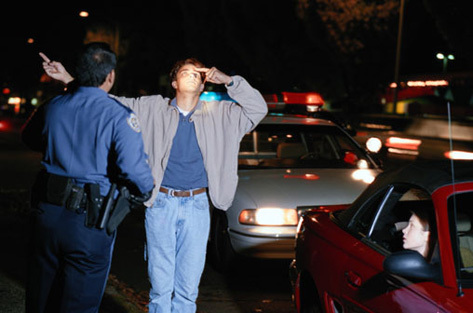Getting confused about the legal matters to go through as part of the settlement process for driving under the influence offense is not uncommon among many offenders who have no idea of how everything will take place after arrest. And because of that, they often find it wise to hire a defense attorney immediately to be properly guided and know the alternatives to avoid the possible consequences or the probability of winning the case if the prosecutor does not withdraw the charge. It happens when the evidences for proving the guilt are strong to be simply denied or refuted unless there were violations committed in the procedures; and thus, there is no other better recourse for the offender than to accept the plea bargain or defend oneself in court. But if you are a defendant, it is not only the thing you should know given that these questions can better clarify whatever confusion you have in mind:
What are the Requirements for Valid DUI Tests?
Before taking any chemical or roadside test, it is crucial for the driver to be aware of the lawful procedures to be followed by the police officers. Through which, the possible violation can be avoided, but if it happens that you have had no idea about it at the time of arrest, these are the requirements that should be met for the tests to be considered valid: (1) police officer should have reasonable suspicion for the offense, (2) there is probable cause to require a driver to take the test and to arrest him, (3) you should have been told of the right to refuse a breathalyzer test or the consequences of refusing such depending on the state laws, and (4) the officer should read your Miranda rights.
What Facts Should Be Proven in DUI Case?
It is the burden of the prosecution to prove the guilt of the offender with reliable evidences taken from the field sobriety or chemical tests or witnesses in the crime scene, and the facts or elements that should be proven in most DUI courts are the level of alcohol of the driver and whether he really was driving for such to constitute drunk driving. Nevertheless, in some other states like in Colorado, there are many facts that are needed to prove guilt and they include driver’s identity, motor vehicle, place of commission, blood alcohol level, alcohol impairment, and effect on driving ability.
What are the Preliminary Motions to be Filed?
Prior to the court trial, you can file motions which, if granted, can be favorable to the defense side. And they typically include (1) Motion for discovery of all the evidences, (2) Motion to suppress evidences due to certain violations, and (3) Motion to suppress statements because of failure to read Miranda rights. However, if these motions are not filed, there is higher possibility that the case may not be dismissed considering that some evidences are not suppressed to avoid conviction. Meanwhile, as to the strategies during the pre-trial motions, you can contest the constitutionality of DUI stop, administration of roadside tests, Miranda rights and probable cause among others.
Being clarified about these essential questions regarding DUI case processes is certainly necessary for any offender to better understand the offense that might lead to undesirable consequences.
Before taking any chemical or roadside test, it is crucial for the driver to be aware of the lawful procedures to be followed by the police officers. Through which, the possible violation can be avoided, but if it happens that you have had no idea about it at the time of arrest, these are the requirements that should be met for the tests to be considered valid: (1) police officer should have reasonable suspicion for the offense, (2) there is probable cause to require a driver to take the test and to arrest him, (3) you should have been told of the right to refuse a breathalyzer test or the consequences of refusing such depending on the state laws, and (4) the officer should read your Miranda rights.
What Facts Should Be Proven in DUI Case?
It is the burden of the prosecution to prove the guilt of the offender with reliable evidences taken from the field sobriety or chemical tests or witnesses in the crime scene, and the facts or elements that should be proven in most DUI courts are the level of alcohol of the driver and whether he really was driving for such to constitute drunk driving. Nevertheless, in some other states like in Colorado, there are many facts that are needed to prove guilt and they include driver’s identity, motor vehicle, place of commission, blood alcohol level, alcohol impairment, and effect on driving ability.
What are the Preliminary Motions to be Filed?
Prior to the court trial, you can file motions which, if granted, can be favorable to the defense side. And they typically include (1) Motion for discovery of all the evidences, (2) Motion to suppress evidences due to certain violations, and (3) Motion to suppress statements because of failure to read Miranda rights. However, if these motions are not filed, there is higher possibility that the case may not be dismissed considering that some evidences are not suppressed to avoid conviction. Meanwhile, as to the strategies during the pre-trial motions, you can contest the constitutionality of DUI stop, administration of roadside tests, Miranda rights and probable cause among others.
Being clarified about these essential questions regarding DUI case processes is certainly necessary for any offender to better understand the offense that might lead to undesirable consequences.

